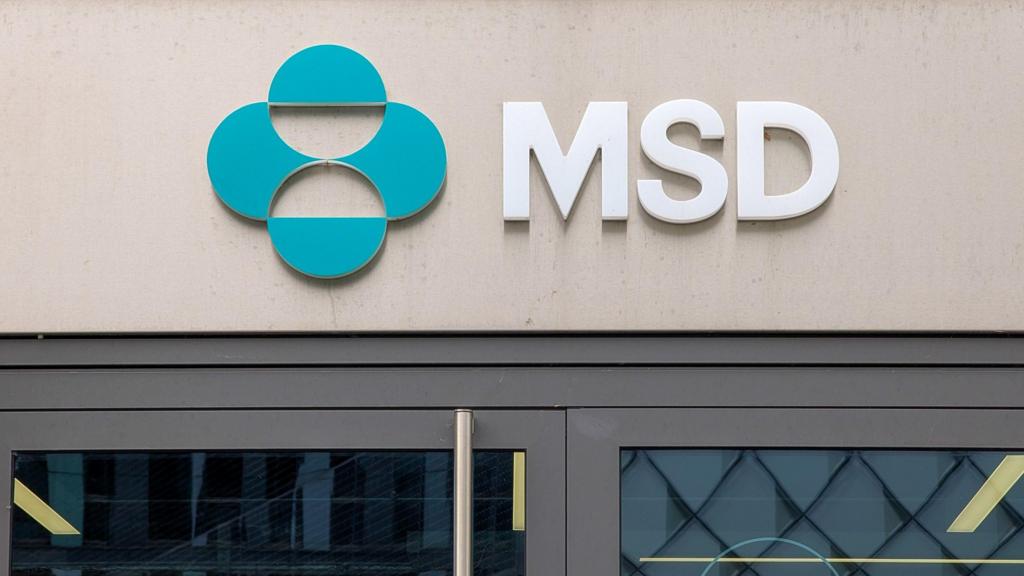“`html
Multinational pharmaceutical corporation MSD is reportedly abandoning its planned £1 billion expansion in the UK, citing insufficient government investment in the sector.
The company, known as Merck in the United States, announced intentions to relocate its life sciences research to the US and eliminate over 100 UK-based positions, attributing the decision to successive administrations’ perceived undervaluation of innovative medicines.
A government spokesperson defended existing investments in science and research, while acknowledging that “more work” remained in this area.
This move comes amidst a broader trend of pharmaceutical companies re-evaluating investment strategies in favor of the American market, spurred in part by pressure from US President Donald Trump, including threats of significant tariffs on imported drugs.
MSD had already commenced construction on a site in London’s King’s Cross, slated for completion by 2027, but has now stated that it will no longer occupy the premises.
Furthermore, the company will be vacating its laboratories at the London Bioscience Innovation Centre and the Francis Crick Institute by the end of the year, resulting in a further 125 job losses.
A statement from the pharmaceutical firm conveyed that the decision “reflects the challenges of the UK not making meaningful progress towards addressing the lack of investment in the life science industry and the overall undervaluation of innovative medicines and vaccines by successive UK Governments”.
MSD’s decision adds to a growing list of pharmaceutical companies retracting or reducing investment plans within the UK.
Earlier this year, in January, AstraZeneca abandoned plans for a £450 million expansion of a vaccine manufacturing facility in Merseyside, citing reduced government support.
Last month, a senior executive at another major pharmaceutical firm cautioned that NHS patients could face restricted access to cutting-edge treatments due to Britain’s perceived lack of investment, deeming the UK “largely uninvestable”.
Johan Kahlstrom of Novartis stated that the company had “already been unable to launch several medicines” within the UK due to the “declining competitiveness” of the market.
Industry sources have indicated to the BBC that significant funding, focused on the intersection of life sciences and artificial intelligence, had been drawn to the hub around Kings Cross.
They also challenged suggestions that the decision was connected to ongoing negotiations regarding drug prices, where the industry has advocated for increased NHS approvals and higher reimbursement rates for medications.
The existing pricing framework was established and mutually agreed upon by pharmaceutical companies in 2023, less than 18 months prior.
Since then, pharmaceutical companies have faced increased pressure from the Trump administration to lower drug prices for American consumers and to allocate more investment within the US, potentially impacting their capacity for investment elsewhere.
In an interview with CNBC in August, Trump alluded to the possibility of tariffs on pharmaceutical imports to the US reaching as high as 250%.
This threat followed an executive order, signed by the President in May, aimed at lowering drug costs for American consumers.
Dr. David Roblin, chief executive of London-based biotechnology company Relation Therapeutics, commented to the BBC that the underlying factors that initially motivated MSD to invest in the UK remain unchanged.
“The academic environment in the UK continues to produce innovative ideas and people to run with those ideas, which attracts foreign investment,” he stated.
“The environment to do research is still outstanding: we’ve got great academics, the NHS does provide a research platform, for example the UK Biobank is proving to be a real attractor for companies like mine,” he added.
Dr. Roblin emphasized that the shift in the political landscape in the US has necessitated large pharmaceutical companies to respond accordingly, “because the US remains the largest market for pharmaceuticals on earth.”
A spokesperson for the Department of Industry, Science and Technology affirmed that the government is actively promoting investment and growth within the sector through its life sciences sector plan.
“The UK has become the most attractive place to invest in the world, but we know there is more work to do,” the spokesperson stated.
“We have already started delivering on this work from investing up to £600 million in the Health Data Research Service alongside Wellcome, through to committing up to £520m to the Life Sciences Innovative Manufacturing Fund, unlocking billions in private investment.”
“We recognise that this will be concerning news for MSD employees and the Government stands ready to support those affected.”
The womenswear brand says higher costs and tough trading conditions have taken their toll.
Card providers would be allowed to set their own contactless card payment limit, under the regulator’s plans.
The Conservative leader tells the BBC the UK could be forced to go “cap in hand” unless the government delivers a plan for economic growth.
Millions of motorists are in line for payouts after being mis-sold loans to buy new and used cars.
OBR spreadsheets, bond markets, and backbench unhappiness on cuts will all influence the chancellor’s thinking.
“`

